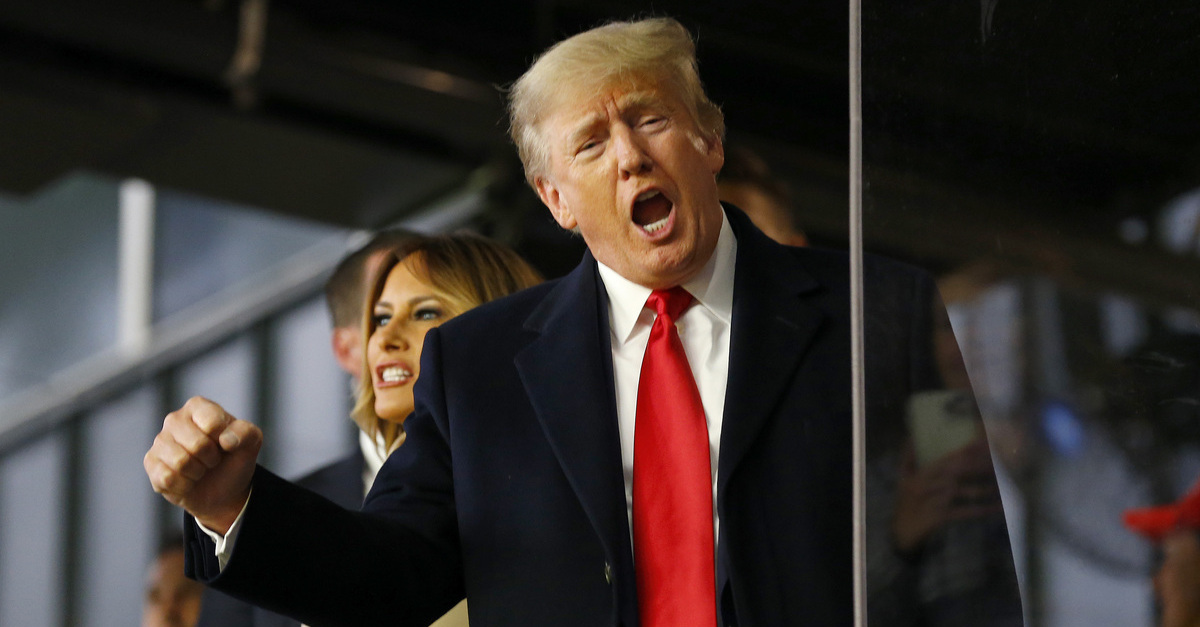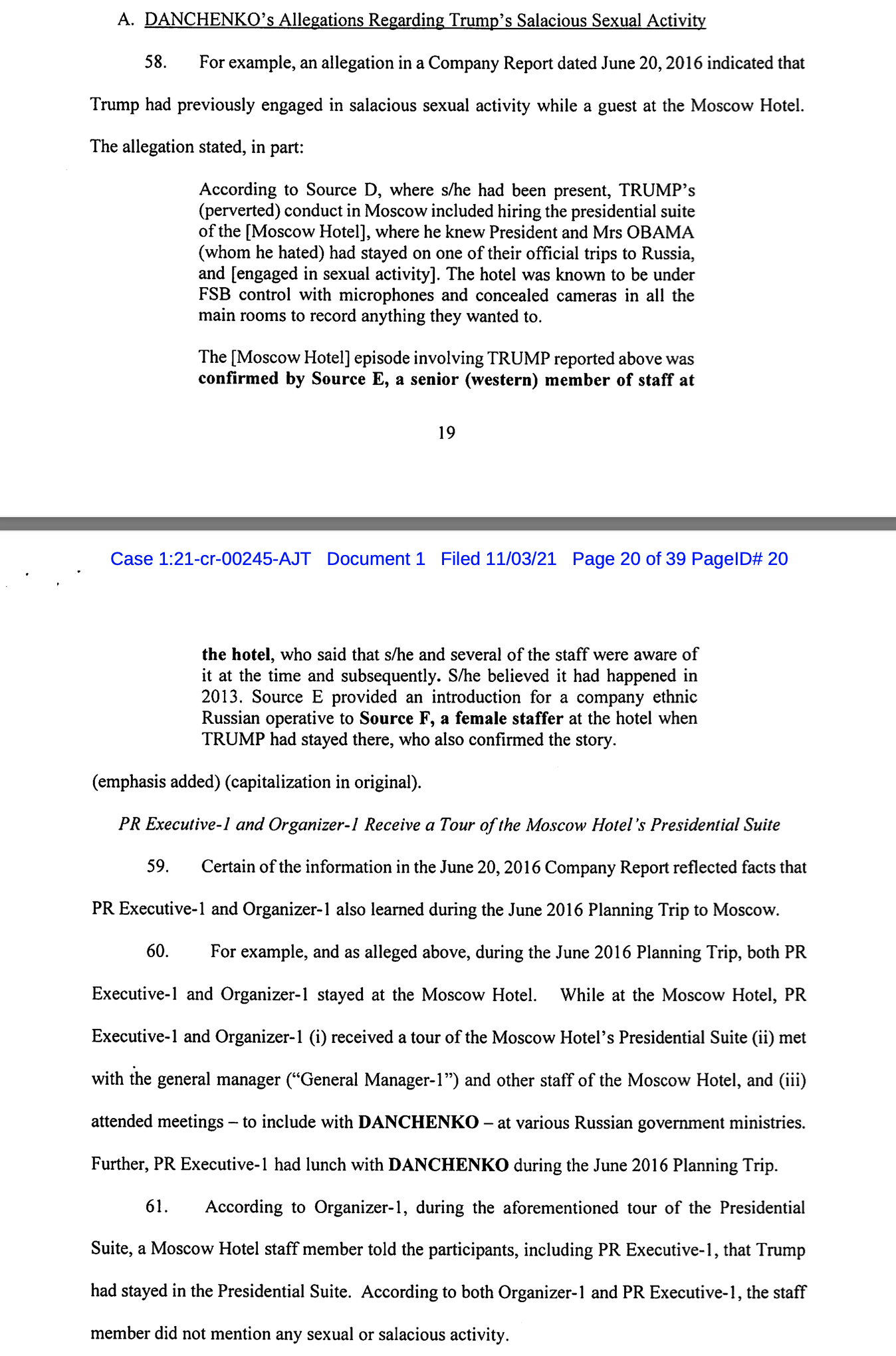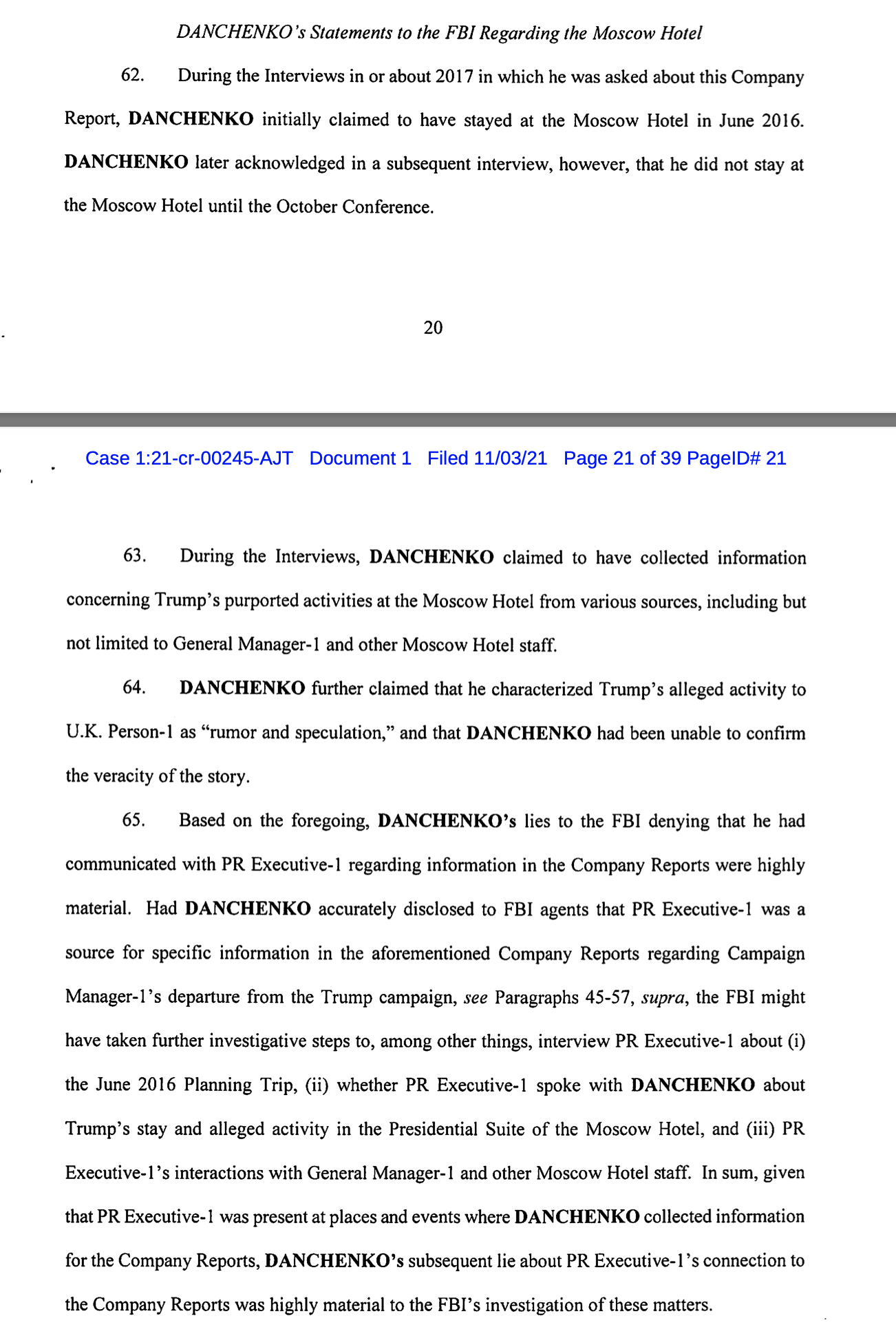
Former president of the United States Donald Trump attends a World Series game.
An attorney representing former president Donald Trump threatened to sue the board of The Pulitzer Prizes over a former board’s decision to award two legacy media outlets top honors in 2018 for Russiagate reporting.
In 2018, the staffs of The Washington Post and The New York Times were co-granted the award for National Reporting.
The organization describes the reasoning:
For deeply sourced, relentlessly reported coverage in the public interest that dramatically furthered the nation’s understanding of Russian interference in the 2016 presidential election and its connections to the Trump campaign, the President-elect’s transition team and his eventual administration. (The New York Times entry, submitted in this category, was moved into contention by the Board and then jointly awarded the Prize.)
How We Got Here
Special counsel Robert Mueller’s investigation into Russian interference in the 2016 presidential election and his long-awaited report did not allege or establish that there was a grand conspiracy between the 45th president’s campaign and the Russian Federation. From the Mueller Report:
As set forth in detail in this report, the Special Counsel’s investigation established that Russia interfere in the 2016 presidential election principally through two operations. First, a Russian entity carried out a social media campaign that favored presidential candidate Donald J. Trump and disparaged presidential candidate Hillary Clinton. Second, a Russian intelligence service conducted computer-intrusion operations against entities, employees, and volunteers working on the Clinton Campaign and then released stolen documents. The investigation also identified numerous links between the Russian government and the Trump Campaign. Although the investigation established that the Russian government perceived it would benefit from a Trump presidency and worked to secure that outcome, and that the Campaign expected it would benefit electorally from information stolen and released through Russian efforts, the investigation did not establish that members of the Trump Campaign conspired or coordinated with the Russian government in its election interference activities.
The Mueller Report did “uncover[] evidence of numerous links (i.e., contacts) between Trump Campaign officials and individuals having or claiming to have ties to the Russian government.”
Then there is the matter of the Steele Dossier, a since-discredited opposition research document prepared by former MI6 spy Christopher Steele and the firm Fusion GPS. The firm was initially funded at the behest of Trump’s GOP rivals and then funded by the campaign of Hillary Clinton. Among the Steele Dossier’s unverified claims that contributed to the narrative that Trump was a Russian asset was the infamous allegation of a “pee tape,” in which the former president was purportedly keen on “employing a number of prostitutes to perform a ‘golden showers’ show in front of him” on a bed the Obamas once slept on in Moscow.
In the aftermath of the scandal widely known as Russiagate, special counsel John Durham, tasked with investigating the origins of the Russia investigation, has, so far, indicted three individuals for: admittedly altering an email which was used in a Foreign Intelligence Surveillance Act (FISA) warrant application to surveil then-Trump Campaign Foreign Policy Advisor Carter Page; allegedly lying to the FBI about their clients when promoting Trump-Russia connections; and for allegedly lying to the FBI about sourcing and claims made in the tawdry dossier.
The latest indictment referenced the origins of the “pee tape” narrative.
Igor Danchenko, an analyst who worked on the Steele Dossier, was charged with lying to FBI agents multiple times about where he got the information that he provided to Steele.
“For example, an allegation in a Company Report [Steele Dossier] dated June 20, 2016 indicated that Trump had previously engaged in salacious sexual activity while a guest at the Moscow Hotel,” the indictment said.


In a recent interview, Steele stated that he has a less than certain belief that the tape “probably does” exist.
Last week, the Washington Post, in its words, “took the unusual step of correcting and removing large portions of two articles, published in March 2017 and February 2019, that had identified a Belarusian American businessman as a key source of the ‘Steele dossier,’ a collection of largely unverified reports that claimed the Russian government had compromising information about then-candidate Donald Trump.”
Where We Are Now
It is in this context that Trump and his attorney Alina Habba have assailed the Post and the Times–along with the ever-shifting Pulitzer Prize Board–over their media coverage.
“[I]t has recently become apparent that the subject articles were based on incontrovertibly false information provided by dubious sources who were maliciously attempting to mislead the public and tarnish our client’s reputation,” the attorney notes. “These sources are now facing criminal charges for their illicit conduct.”
Habba’s profile has been raised considerably lately in at least two other matters on Trump’s behalf.
A section of the letter highlights corrective action taken by the Post after the Russiagate narrative fell apart [emphasis in original]:
Despite these revelations, the Pulitzer Prize Board has failed to take any action to correct, retract, or otherwise repudiate the false reporting contained in the subject articles. Even one of the recipients of the award, The Washington Post, has acknowledged the unsubstantiated nature of its reporting as it relates to these events. Specifically, on November 12, 2021, The Post retracted statements from several articles relating to the Steele Dossier and the alleged Russia-Trump connection and its executive editor proclaimed that “The Post could no longer stand by the accuracy of those elements of the story.” On the same day, The Post also published an op-ed authored by one of its columnists calling for CNN to retract its coverage of the Steele Dossier, noting that “[t]he Danchenko indictment contextualizes the flimsiness” of the document and pointing to such misleading coverage as an example of why “many people mistrust CNN.”
“As has been widely publicized, the coverage was no more than a politically motivated farce which attempted to spin a false narrative that my campaign supposedly colluded with Russia despite a complete lack of evidence underpinning this allegation,” Trump writes in his own letter, somewhat inaccurately, before assailing the two outlets for their reliance on anonymous sourcing.
Again, while Mueller failed to substantiate the broader narrative, numerous “contacts” between Russian nationals and the Trump 2016 campaign were noted by the attorneys who prepared the report.
In double-emphasized bolded, underlined language typical of demand letters, Habba promises a lawsuit should The Pulitzer Prizes fail to do as her client demands.
“Based on the foregoing, it is hereby demanded that the Pulitzer Prize Board take immediate steps to strip the New York Times and The Washington Post of the 2018 Pulitzer Prize for National Reporting,” the lawyer’s letter continues. “Pulitzer Prize Board’s failure to do so will result in prompt legal action being taken against it. Please be guided accordingly.”
Law&Crime reached out to The Pulitzer Prize’s Interim Administrator Bud Kliment (the person who the demand letter was addressed to) and the organization itself for comment on this article but no response was forthcoming at the time of publication.
“I’m embarrassed that the great State of NY which licensed me to practice law also licensed the Trump lawyer who sent this idiotic letter,” whistleblower attorney Mark Zaid face-palmed via Twitter. “Gives the entire system a bad name. It also demonstrates why you shouldn’t practice law outside your area of expertise.”
But there is some recent precedent here.
The Pulitzer Prizes in 2020 rescinded the New York Times nomination as a finalist for the 2019 “International Reporting” award after the Times acknowledged that “core portions” of the “Caliphate” podcast and “The ISIS Files” report turned out to be based on a hoax. In that instance, the Pulitzer Prize Board “accepted withdrawal of the entry as an appropriate resolution.”
Trump himself expresses a desire for something similar viz. the awards handed out to the Times and the Post in 2018.
“Ultimately, my hope is that the recipients of the 2018 Pulitzer Prize for National Reporting, The New York Times and The Washington Post, will voluntarily surrender this award in light of recent revelations,” the letter by the infamously mercurial former president concludes. “However, should they fail to do so, I would expect that you will take the necessary steps to rectify the situation, including stripping the recipients of their prize and retracting the false statements which remain on the Pulitzer website. Without holding the recipients to such a high standard of accountability, the integrity of the Pulitzer Prize namesake stands to be wholly compromised.”
A post-script penned in Trump’s signature sharp scrawl adds:
Our country has been hurt so badly by this criminal scam. Please do the right thing.
[image via Michael Zarrilli/Getty Images]